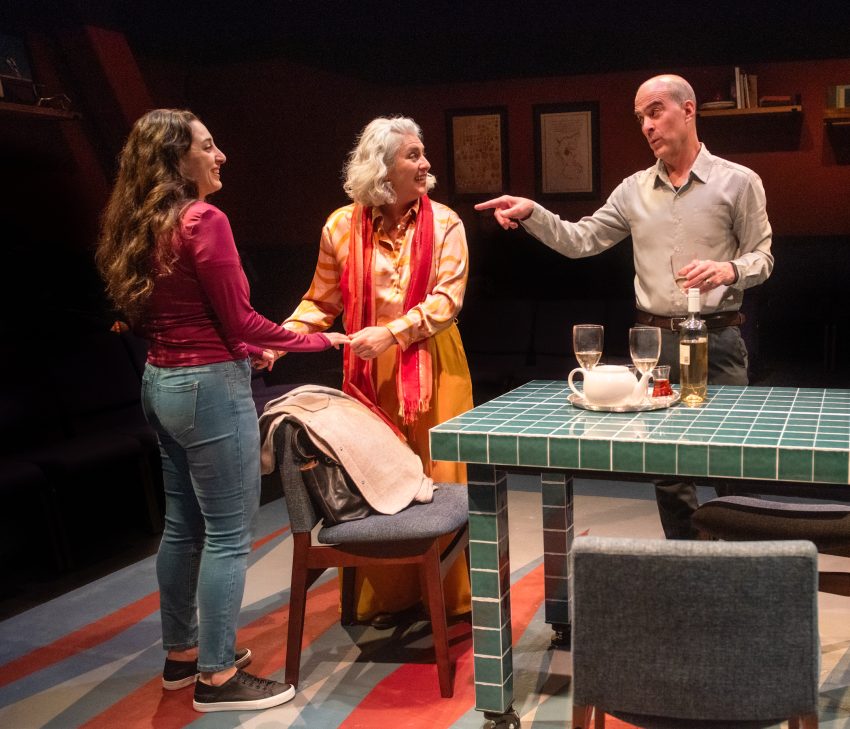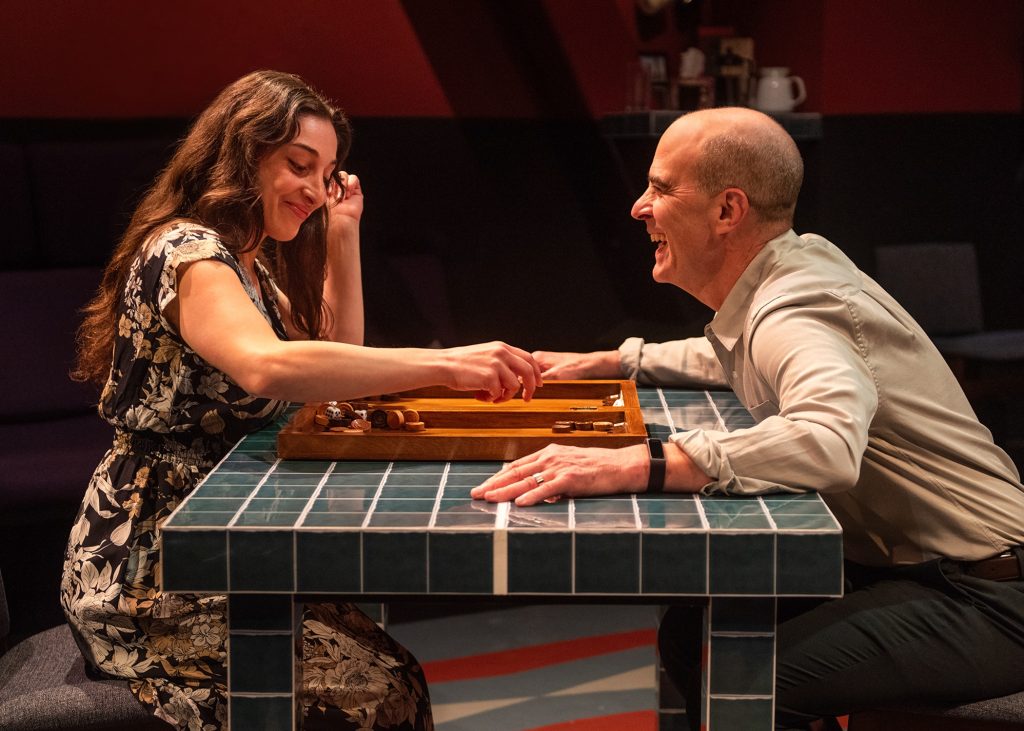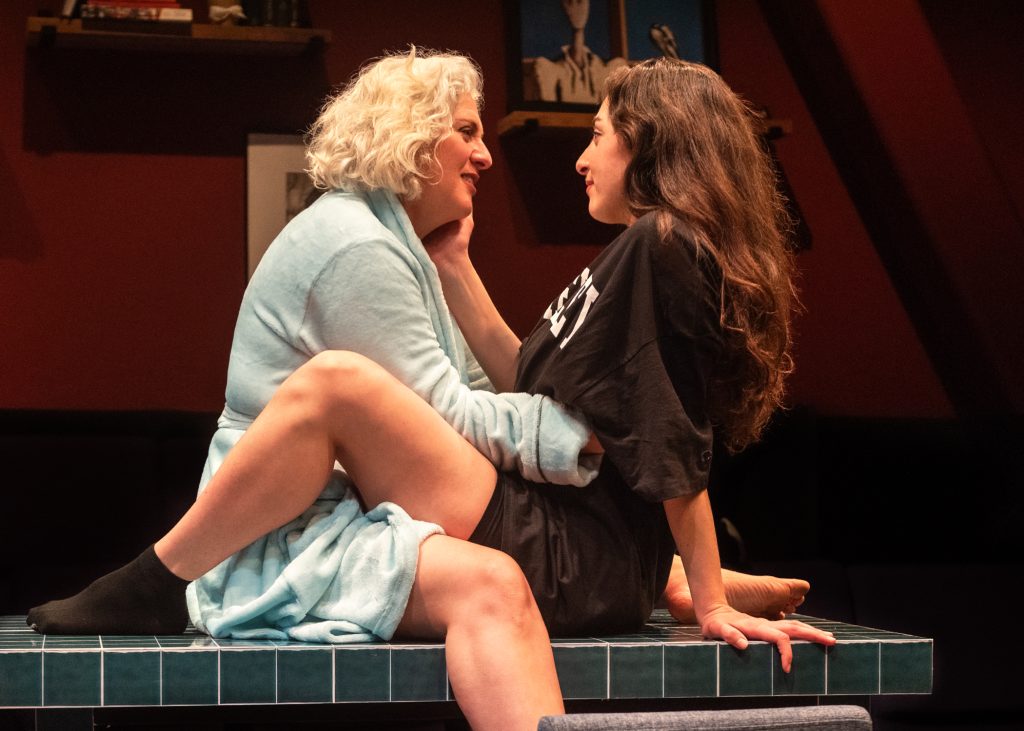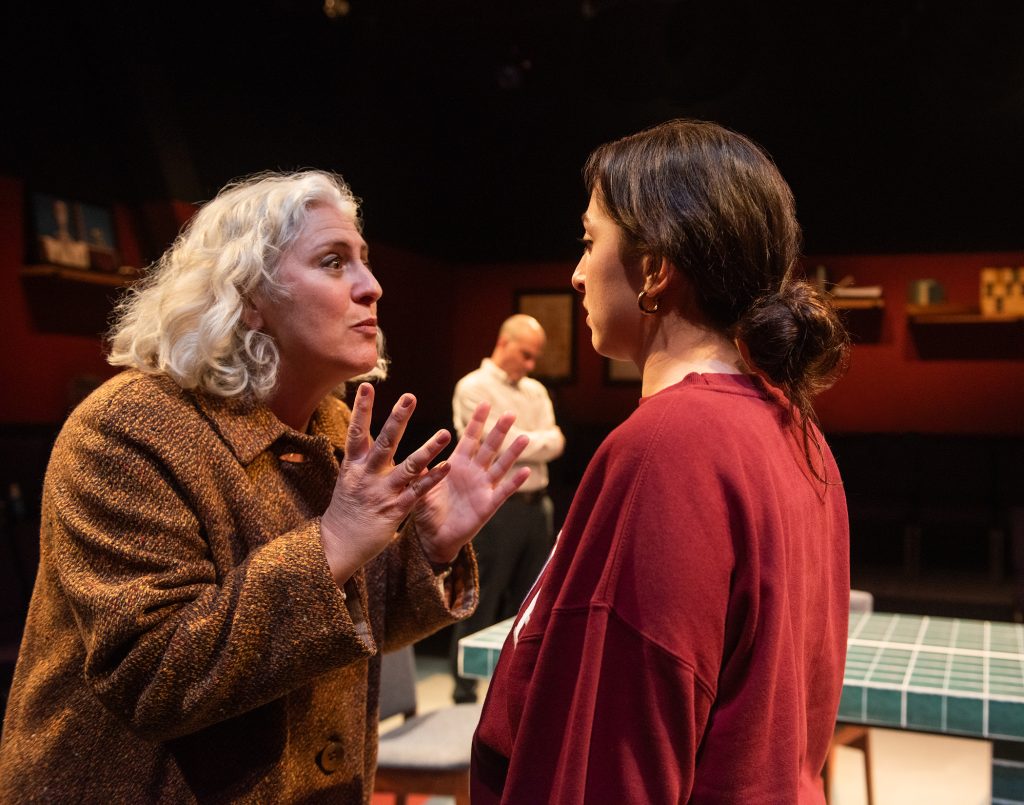
“The Tutor”: Cultural Anxiety Creates Sparks—at NCTC
Torange Yeghiazarian Pairs Passion with U.S./Iran Conflict
by Lynne Stevens
What makes “The Tutor” different from any other love triangle? Well, there are more than three players in this affair. An Iranian couple and their friendly “tutor” play out their entanglement against sharp political conflict. The fourth player is Iran, itself, during the 2022 “Woman, Life, Freedom” uprising.
As Iranians celebrate Yalda—a holiday of birth and renewal at the winter solstice—Iran looms like a fourth character. Iranian Americans celebrate the traditional holidays; but in Iran, young women are burning their scarves and dying. In this fast-paced drama, everyone becomes their worst selves, trying to explain away their selfish behavior.
First, Kayvon (Lawrence Radecker) startles us with his “mama’s boy” outbursts as he comically declares, “The Bay Area can be too much, for anyone.” Kayvon marries to please his mother in Berkeley. Then he recruits his oldest friend to “tutor” his new wife on San Francisco life.

His friend Azar (Debórah Eliezer), a newly tenured professor of mathematics at Berkeley, used to fantasize about Kayvon. Although Azar is incensed when Kayvon asks her to guide his young wife, she soon inserts herself into the couple’s life. Clearly, nothing good will come of this liaison.
Finally, 25-year-old Baran (Maya Nazzal) has come from Iran to Berkeley to marry the older man, a family friend. Baran, an opportunist, will say anything to escape Iran. But her selfish motivations emerge slowly.
When Kayvon’s mother mysteriously dies, we flash back to the women’s first meeting and the frisson between them. The ladies eye each other as though each were delectable dishes, leading to their passionate affair.

Newlyweds Kayvon and Baran engage in some sexual teasing after a winter solstice party. We get the sense that Baran is putting him off. She challenges Kayvon to a game of backgammon, delaying going to bed. A painted backgammon floor pattern echoes the game, along with lovely paisley patterns projected onto the actors. The exotic Eastern game highlights their cultural clash.
We hear a lot of bickering about the revolution in Iran, with soul searching about what their roles should be. They yearn to help their family and friends who are struggling against the oppressive regime.
In three stirring monologues, each character insists on truth telling, rather than lies and hypocrisy. They condemn Iran, where women can kiss other women—but straight couples cannot express affection in public. Baran seems to be the only one who sees this duality; she is determined to buck the status quo—in two cultures.

At Azar’s misguided insistence, Baran writes an article for the New York Times about tyranny in Iran. Her article makes things worse for Baran’s family, leading to a flare up between the women.
We sit at the edge of the action in NCTC’s intimate 59-seat theater. Like peeping Toms, we witness the characters grapple with their deceptions. When Kayvon tries to figure out what really happened to his mother, sparks fly. Baran, flustered and shifty eyed, turns the moment into anger over the horrors back home.
See this play to understand how the personal and the political intermingle. The intensity of the actors will grip you.
“The Tutor” by Torange Yeghiazarian, directed by Sahar Assaf, at New Conservatory Theatre Center, San Francisco. Info: nctcsf.org – to May 12, 2024.
Cast: Debórah Eliezer, Maya Nazzal, and Lawrence Radecker.
Banner photo: Maya Nazzal, Debórah Eliezer, & Lawrence Radecker. Photos by Lois Tema